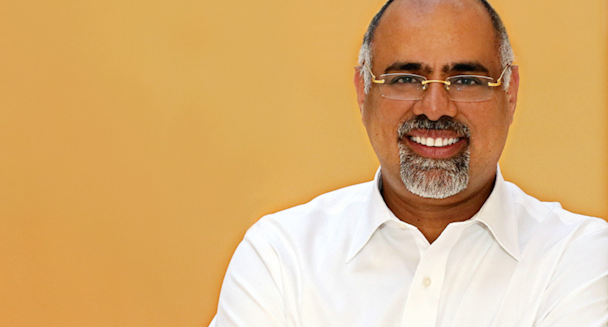Mastercard CMO: holding duopoly to account is not about ‘one advertiser jumping up and down’
Mastercard’s Raja Rajamannar believes advertisers must come together as a collective if the duopoly is to be held to account, saying an individual “jumping up and down” won’t achieve the “integrity and transparency” in the system that he, and fellow CMOs, are demanding.

Raja Rajamannar, CMO Mastercard
Mastercard was among those to temporarily pause spend following Google’s brand safety scandal of 2017. But the financial giant, like many other advertisers, resumed spending relatively quickly following repeated assurances from bosses that safeguards were in place.
More recently, eyes have been on the other half of the duopoly, Facebook, following a New York Times expose which suggested bosses, including Mark Zuckerberg and Sheryl Sandberg, ignored and then concealed a number of issues relating to user privacy and how data was being used by third parties. Among them, political consulting firm Cambridge Analytica which just six months earlier was exposed for collecting data from over 87 million accounts to inform targeted advertising.
However, by and large advertisers – also grappling with being misled by Facebook about the average time users spent watching videos as well as a high-profile hack – did not pull spend.
Though Rajamannar declined to speak specifically about how convinced he was by Facebook or Google’s efforts, he said the larger issue of being confident in knowing where the “boatload of money” it spends on media goes is unrelenting.
“We need to know how that money is being spent and where it is going and that we are getting the right value back that we hoped and planned for. There have been significant breakdowns in the value chain,” he said.
There are two areas he’s concerned about right now.
Brand safety remains high, but not just in the context of appearing on “an arms dealing site, terrorist site, pornography site…that a level of brand safety that just should be there,” he said. But, rather, being in control of environments that simply don’t suit the brand’s message. “I might not want to be on a site where there’s wrestling. Wrestling may not be bad in itself but it may not fit the character of my brand. This is a hypothetical example but it’s safety and fit I need to be sure of.”
Secondly, transparency. He said it continues to be plagued by instances where it's still not 100% sure of the cut that agencies, publishers and platforms are taking from its spend.
On the first problem, his solution is not about cutting the duopoly from media plans. Instead, Rajamannar is leaning on industry trade bodies, such as the World Federation of Advertisers (WFA), to “represent the interests of the whole advertising community” in the hopes Google and Facebook will be more inclined to take notice.
He said he also wants more advertisers to “share learnings” on what they’ve done that’s worked, or not.
“Brand safety and transparency is an industry-wide phenomenon that needs to be tackled. Whether it’s a walled garden or not, we need solutions that are appropriate. If a company has to deal with these media companies one on one, they don’t have the right amount of influence and clout to bring about the requisite level of change. But if we tackle the problems together as an industry that’s where we’ll see result,” he said.
“The industry is on a journey and it’s not going to happen from one company jumping up and down. We’re being brought together through these forums and we’re fully involved – whether it’s finding technical solutions, templates for contracts, or it’s sharing knowledge. Why should every company learn everything by itself? If there are companies that have gone down a path and discovered certain things that they have implemented and have learnings we can jumpstart from there. I want collective learnings so we’ll all be better off.”
Rajamannar has applauded moves to establish an industry-wide whitelists or blacklists (“this would ensure all marketers are getting a fair return for their investment"), and the TAG 'Certified Against Fraud' programme which is soon to arrive in the UK following a partnership with Jicwebs.
The marketer said it has been working well but is not complacent, reiterating that the only way it will “stay ahead of the game” is to improve collaboration with other brands.
“The problem is always that it’s a constant battle. It’s not one and done. When you do something, the crooks come back with something else. It’s a constant battle between good and evil and we need to stay ahead of the game but as an industry we need to come together. Because if each company tries to find solutions for itself, it’s suboptimal and impossible to tackle.”
On his second concern, Rajamannar was one of the first to sign up to the WFA’s Media Charter, which seems to improve transparency, among other things, by creating a mandatory framework that all agencies, ad tech firms and media platforms must comply with to secure revenue.
"Integrity and ethics are paramount and we’re demanding that of our agencies," he said. "We’ve got contracts which now implement and enforce whatever we do to do to ensure there’s integrity and transparency in the system."
Raja Rajamannar has been nominated for the World Federation of Advertisers' global marketer of the year award. You can vote for him, and the other finalists, on the WFA website.

